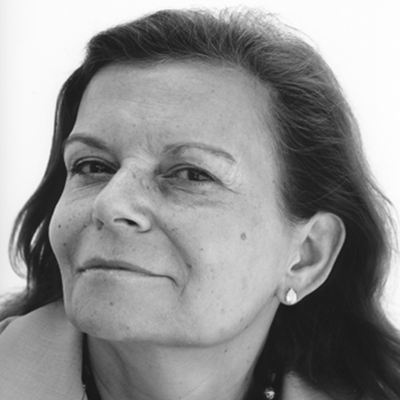Who I am and why I write
Carme Riera
Carme Riera (Palma de Mallorca, 1948) is a lecturer in Spanish literature at the Universitat Autònoma (Autonomous University) in Barcelona. Her work has been translated into many languages. Some outstanding titles are Dins el darrer blau (In the Last Blue) (1994) and Cap el cel obert (Towards the Open Sky), which are both historical novels about Conversos (Converted Jews) in Mallorca. La meitat de l'ànima (Half the Soul) was awarded the distinguished Sant Jordi (Saint George) Prize for the novel in 2003.
There is an image which, with obsessive clarity, always superimposes itself on the reasons that motivate me to write, the image of a girl (a nena, or little girl, as they say in Barcelona Catalan) with plaits and sad eyes, looking at the distant sea from the window of a big, empty house in the old quarter of Palma de Mallorca. The image of this little girl, who fled terrified from mirrors because she was not beautiful like her mother, but ugly like her father, once again filled my eyes: she does not play, she watches her brothers and sisters playing in the garden of the house from the balcony of her grandmother's room, the distinguished grandmother, whom she listened to almost all day long as she recounted the old stories of the family's past, rancid and shattered. Love stories with uncontrollable excesses and passions, kidnappings even, stories that unlock the little girl's fantasy and encourage her to dream up similar tales. The sad little girl who rejects mirrors because she's afraid of seeing herself reflected with the moustache worn by her father, started writing variations of the stories that her grandmother had told her when she was eight or nine and, in order to avoid direct confrontation with the man in black who every week carried out interrogations from behind the tiny grilles of the odious confessional, she even tried to make her confessions in writing. Only this way, by making her presence vanish, does she feel able to conquer her infinite shyness and, even, to dilute the possible blame amid the lines of her writing. Let's just say that the blank sheet of paper was like a mirror for her, the mirror from which she fled, because in the blank sheet of paper she felt flattered and even indulged.
I cannot deny that I feel a great tenderness, much more than when we were that way, for the girl that I once was, whose experiences go part of the way to explaining the reasons that lead me to write. I now know why I began writing, and that it was because of my grandmother, first of all, spurred on by her ability to tell stories, and second, because writing helped me to banish my ghosts and, above all, to understand the world, to get to know the reality that surrounded me and to clarify it. Subsequently, other reasons have been added to these fundamental ones; I write, undoubtedly, because I cannot help it, I cannot take away the need to weave tales, to imagine alternatives to reality, to the environment, to everything I have within my grasp.
Copyright © 1998 Institució de les Lletres Catalanes. Reproduced with the permission of the author




